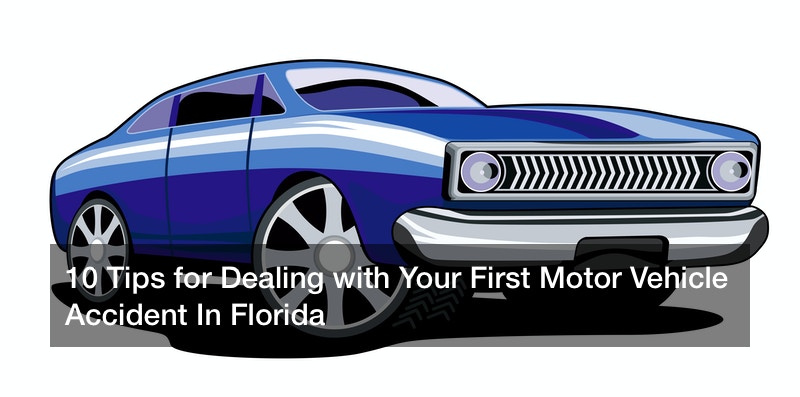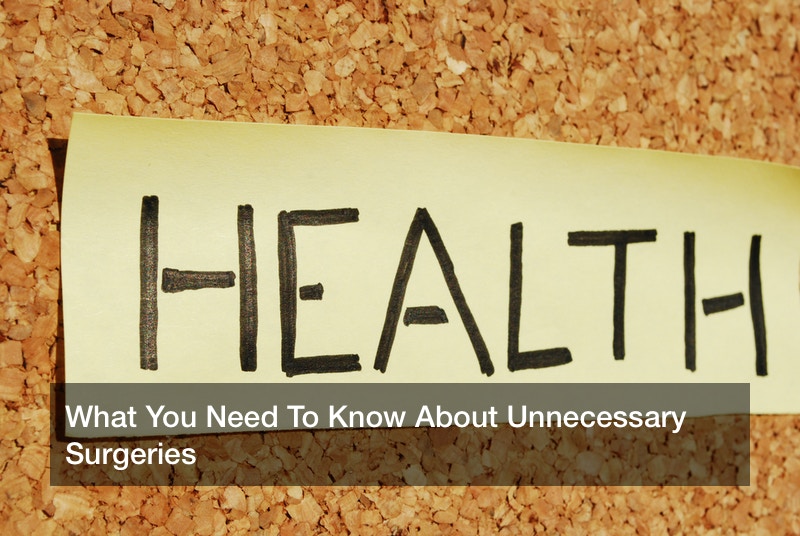
Accidents are sometimes completely unavoidable and come as a part of life. Spilling your morning coffee on your way to work, putting bleach instead of soap in your laundry: the occurrences of accidents within our lives are staggering. Motor vehicle accidents are no different. Unfortunately, there is a high possibility you will one day have to know how to deal with your first motor vehicle accident.
In the U.S., there is an average of 6 million car crashes every year. Chances are, you will be involved in one of those 6 million crashes at some point in your life. Motor vehicle accidents can happen due to negligence on behalf of another driver, and sadly sometimes even due to negligence on your behalf. The possibility of negligence can increase if you’re on your phone texting, not paying attention, distracted by road signage, etc. The possibilities of negligence and accidents increase even more as the population of the state you live in does. In a highly populated state with a vast mix of people such as Florida, you can imagine those possibilities are high. In fact, Florida has over 200,000 car crashes annually.
Be Prepared
In order to deal with your first motor vehicle accident swiftly, you must first be aware of some of the legal and common-sense procedures that follow an accident. These will help you to be better prepared to deal with the other party involved in your accident, insurance companies, and even attorneys should your first motor vehicle accident involve outside factors such as alcohol or drugs. The following 10 tips will help you become familiar with what steps to take once you face your first motor vehicle accident, especially in Florida, and hopefully help you remain calm and collected, in order to enjoy the Florida sunshine again.
1. Stay at the Scene
Experiencing your first motor vehicle accident can be very frightening. You might be shaken-up after the experience, or worse yet injured. In addition, road-rage incidents perpetrated by angry drivers that cause an accident can put your safety at risk. Whatever the cause of your first motor vehicle accident, it’s important to remain calm and stay at the scene of the accident, especially in Florida.
Due to the high number of hit and run accidents in Florida, the state has enacted a program called the Stay the Scene Campaign to educate drivers on the importance of not fleeing. 25% of drivers, however, still choose to not listen, and face criminal charges that can range from misdemeanors and 60 days in jail to felony charges if the hit and run involves fatalities. In Florida, the Aaron Cohen Life Protection Act imposes a mandatory minimum of 4 years for a driver convicted of leaving the scene of a crash resulting in a fatality, and was named after a cyclist killed by such a driver. Though it may not be readily apparent during your first motor vehicle crash, it’s always best to stay at the scene of an accident, no matter how small it might appear to you.
In contrast, if you are the victim of a hit-and-run accident, contacting civil litigation attorneys can help you win a hit-and-run case in order to get you settlement money and financial help if you are injured in an accident.
2. Don’t Speak to the Other Driver
After an accident, you might be tempted to talk to the other driver and even apologize for your actions if your first motor vehicle accident is a result of your negligence. However, even saying “I’m sorry” can be an admission of guilt, and it’s important you don’t give any sort of information other than your insurance. Doing so saves you from being held liable and having the other driver use your words against you during any kind of lawsuit.
If possible, call an auto accident injury lawyer right away in order to get up-to-date advice on what to say, who to talk to, and any other information to support you during your first motor vehicle accident. In addition, don’t give in to the other person involved in the accident if they react in a negative or hostile way. In Florida, according to a survey by Auto Vantage, a roadside assistance company, both Orlando and Miami were among the top ten cities in the U.S. to have the least courteous drivers. Keep this in mind, and if necessary, call the local authorities to help you during your first motor vehicle accident.
3. Contact your Insurance Company
When dealing with insurance companies, you will find that the more information you have, the better. The basic information you should collect after an accident includes the other driver’s insurance information, the other driver’s license information, their vehicle make, color, and year, and also pictures of the crash. Automobile insurance companies will ask you to provide, at a minimum, the above-listed items. In Florida, failure to maintain required insurance coverage can result in the suspension of your driver license and registration, and a requirement to pay a reinstatement fee of up to $500.
In addition, under Florida law, every motorist is required to carry a minimum of $10,000 in Personal Injury Protection (PIP) coverage. A driver’s PIP coverage, as this covers medical bills and lost wages the driver may suffer as the result of an accident. Because Florida is a no-fault state, when an accident occurs, each person involved in the crash turns to his or her own automobile insurance company to pay the costs of medical care and other losses up to $10,000 in damages.
4. Seek Medical Care Right Away
If you are involved in a serious motor vehicle accident, chances are you will be treated and taken to the appropriate hospital nearest the scene. However, sometimes an accident leads to injuries that aren’t so life-threatening and don’t require medical assistance. Nevertheless, if your first motor vehicle accident leaves you feeling dizzy, nauseous, foggy, or causes you to lose memory, it’s important to seek medical care right away. It’s better to bite the bullet and be in one of Florida’s many hospital beds than not. Not seeking medical care can lead to serious injuries, such as a concussion, or a silent hemorrhage and internal bleeding that can be fatal. In addition, in Florida, PIP insurance may not cover damages if the injured driver isn’t treated within 14 days of the crash, making it all the more important for you to seek care.
5. Follow-up with Personal Injury Lawyers
Once you seek medical care, it’s important to follow-up not just on your physician appointments, but also with the best personal injury lawyers for your accident. Personal injury lawyers can help get you in touch with outside physicians that can examine you if you feel you have been injured during your accident and have sustained what is known as a “permanent injury.”
According to Florida statute (627.737(2)), a permanent injury is defined as a significant and permanent loss of an important bodily function, a permanent injury within a reasonable degree of medical probability, other than scarring or disfigurement, significant and permanent scarring or disfigurement, or sadly death. If you suffered from a permanent injury, you can now sue for damages and are no longer subject to the “No-Fault” limitation against the at-fault driver. You can then sue for medical bills, lost wages, damages, and emotional suffering and strengthen your case with the help of a good personal injury lawyer.
6. Initiate Repairs the Right Way
Sometimes your first motor vehicle accident is a lucky one that includes a simple fender-bender or scratch. Other times, your accident is so bad you have to get your car towed to either a repair shop or auto dealership. In either case, it’s important to contact your auto insurance company to get repairs set up right away. As mentioned, in Florida each driver is responsible for paying their own costs of repairs, unless the cost exceeds $10,000. In Florida, your minimum deductible is $1,000. If an auto repair shop concludes your damages are over $10,000, you might have to pay out of pocket. However, you may be able to get reimbursement for the cost if the accident is deemed to be the fault of another driver. No-fault laws do not absolve at-fault drivers entirely. In either case, you will more than likely have to pay a deductible before your auto repair shop can initiate repairs. The amount will vary based on your insurance policy but usually ranges between $1,000 and $2,500.
7. Gather Eye-witnesses and Evidence
Though you might think being in a no-fault state such as Florida means paying for your own damages and not being able to sue, as we mentioned earlier this is not the case. If you suffer a permanent injury or know the other driver is at-fault, proving this can help cover extra costs and help you get more money in damages. To prove your case, and to help your lawyer prove your case as well, it’s important to gather as much evidence as possible in the form of eye-witnesses, videotapes, recordings of the accident, and even the statements from police on the scene. Investing in dash-cams can help greatly with this, so when it comes time to review the accident footage, determining who was at fault can be clearer. Stopping eye-witnesses and getting their information is immensely important as well. Keep these things in mind when gathering evidence at the scene of your first motor vehicle accident.
8. Gather Lawyers if You’re At Fault
Unfortunately, the use of alcohol, drugs, cell-phones and just being distracted can cause you to be at-fault in an accident. Though Florida’s no-fault laws protect you from paying heavy amounts of cash in damages, they do not omit you entirely if your accident leads to serious permanent injuries. In addition, Florida still has strict DUI and DWI laws that can lead to serious jail time. Even a first DUI conviction in Florida has consequences, such as a fine of $250 to $500, community Service of 50 Hours, one year of probation or even six months imprisonment. Contact a DUI defense attorney if you find yourself dealing with these possible outcomes right away after your accident, and seek additional help from addiction counselors as well.
9. Watch Out for Insurance Increases
It’s important to watch out after your accident for possible hikes in insurance rates. Per Florida Statute § 626.9541, your car insurance cannot be increased after an accident unless you were substantially at fault. The statute states that insurers cannot raise liability, personal injury protection, medical payments, or collision premiums simply because you were involved in an accident. If you were substantially at fault, however, your insurance rates will go up, for potentially 3 to 5 years, due to you being seen as high risk. This can cause you to pay heavily for an accident, paying more in insurance on top of an auto loan payment. Seek help from a lawyer if you feel your insurance company is acting in bad faith and not following their service agreement.
10. Examine How to Prevent Future Accidents
Your first motor vehicle accident might leave you shaken up, but it shouldn’t discourage you from driving or living in fear. Accidents are unavoidable, and can happen as soon as you open your overhead garage door, or 200 miles away in a road trip. In either case, installing dash-cams, practicing defensive driving, eliminating the use of alcohol, cell-phones, and keeping a steady eye on the road can help you prevent future accidents.
It’s important to stay vigilant with your safety going forward after an experience such as an accident. It can certainly make life difficult afterward, especially if you’ve been injured. However, be sure to work with your personal injury lawyer to ensure you’re taken care of accordingly. When you work with a professional, you’ll be able to rely on them for help going forward. Their expertise will be vital when you’re dealing with the after-effects at work, at home, and in society in general. Adjusting back to normal day-to-day life can be difficult after an accident, but a professional lawyer will be able to give you the help you need.
When in doubt, don’t be afraid to reach out to your lawyer for advice. There are professionals and will be able to help you in more ways than one. They also can give you more legal advice down the road. When you establish a rapport with a trust lawyer, you can always return to them for future cases or potential questions. Don’t hesitate to call one today and ensure you’re getting the best coverage you deserve.
In Florida, being a no-fault state can streamline the process for your insurance pay-out, and help defend you even if an accident was your fault. Keep in mind Florida’s unique insurance laws, many driving laws, and use this knowledge to your advantage when dealing with your first motor vehicle accident.






